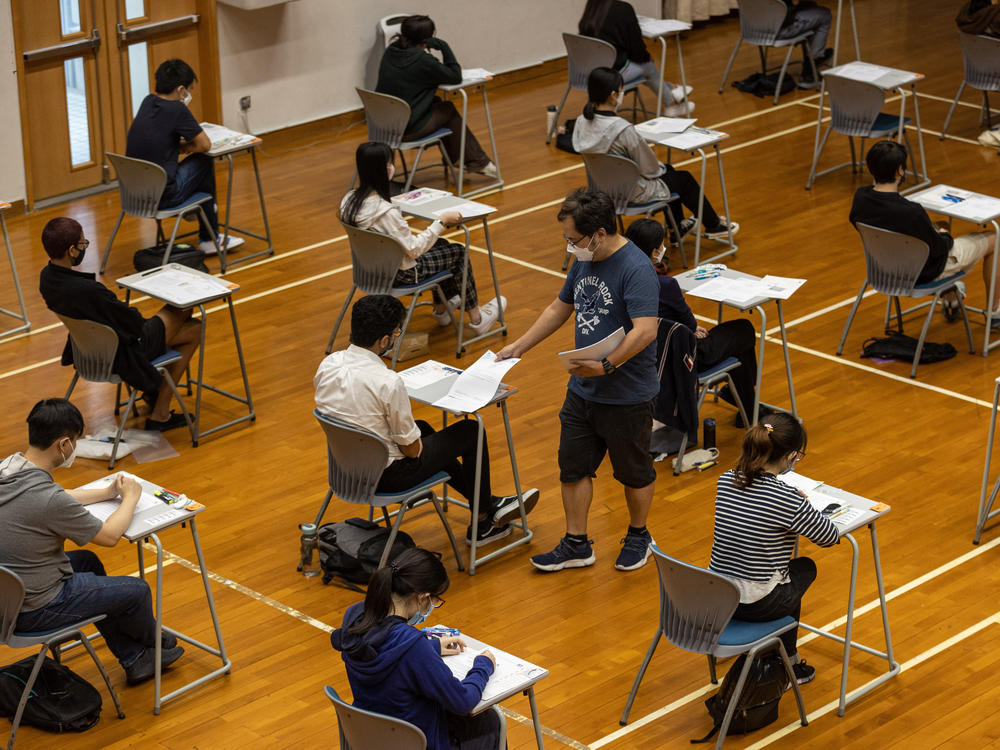Section Branding
Header Content
Was Hong Kong a colony? Not according to new textbooks, a newspaper says
Primary Content
At the stroke of midnight on July 1, 1997, the British flag over Hong Kong was lowered and the Chinese flag was raised at a ceremony marking the end of more than a century and a half of British colonial rule. Chinese President Jiang Zemin was on hand, as was Britain's Prince Charles.
But according to the South China Morning Post, new textbooks approved by Beijing for use in Hong Kong contend the territory was never a British colony. The reason: China never recognized the treaties that ceded it to Britain.
The Post says four sets of textbooks are currently being vetted by Hong Kong's education bureau. They are part of a "citizenship and social development" course aimed at high school students.
As Beijing's grip on Hong Kong has tightened in the wake of huge anti-government protests in 2019, re-vamping education has been a focus. The SCMP says the new class is an overhauled version of a liberal studies course that pro-Beijing politicians blamed for "radicalizing youth".
"All the new textbooks said Hong Kong was never a British colony as the Chinese government had never recognized the unequal treaties or given up sovereignty over the city," the newspaper says.
"The textbooks said the United Nations removed Hong Kong from a list of colonies in 1972 after China made the demand."
Despite re-writing textbooks, Hong Kong's colonial history that stretched for more than a century and a half may be hard to erase in the territory.
Britain seized Hong Kong during the First Opium War, and China's Qing Dynasty formally ceded it to the U.K. in a treaty in 1842. Until July 1997, Hong Kong was run by a British colonial administration. Many in Hong Kong still have links to Britain, or even U.K. passports, and some recall British rule with nostalgia, chafing under Beijing's heavy hand.
Even Chinese President Jiang seemed to acknowledge in a speech at the handover that Hong Kong had been a colony - or at least that China had not been exercising sovereignty over it.
In recent years, as Beijing has taken a more proactive role in Hong Kong, the U.K. has accused China of violating the Sino-British Joint Declaration that underpinned the handover and guaranteed rights and freedoms in the territory.
Chinese officials have rebuffed the accusations, saying that Declaration was not valid since Hong Kong was already back in China's hands.
The SCMP says the textbooks have also "adopted the government's account of the 2019 social unrest in Hong Kong, saying it was a threat to national security and external forces were behind the protests."
The protests prompted Beijing to impose a sweeping National Security Law on Hong Kong in 2020 in the name of restoring order. Critics say it's been used to silence dissent.
Copyright 2022 NPR. To see more, visit https://www.npr.org.

